#AI Market
Explore tagged Tumblr posts
Text
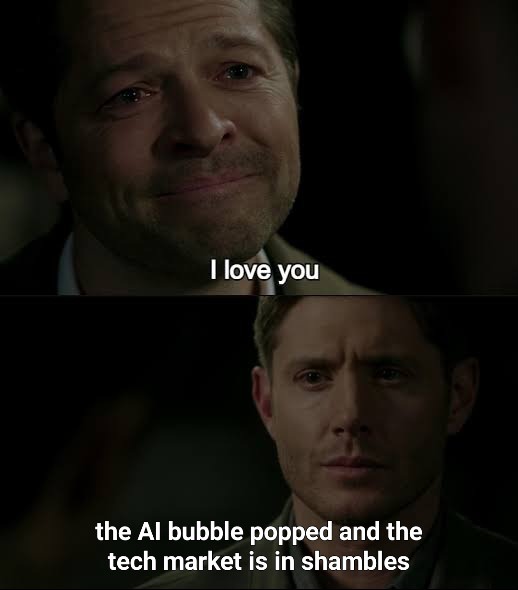
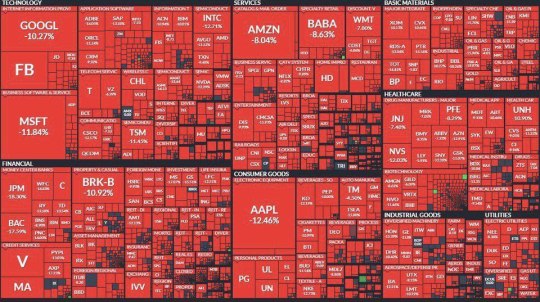
So on the 27th DeepSeek R1 dropped (a chinese version of ChatGPT that is open source, free and beats GPT's 200 dollar subscription, using less resources and less money) and the tech market just had a loss of $1,2 Trillion.
Source

#market crash#deepseek#deepseek AI#chatgpt#OpenAI#world news#destiel news#im quite late for the news but I havent seen it anywhere on tumblr so#here it is#fuck ai#meh
87K notes
·
View notes
Text

AI Market Dynamics: Google, Deepseek, and OpenAI's Super Bowl Ad (Free Episode):
#ai#ai model#ai tools#ai generated#ai companies#ai news#open ai#chatgpt#deepseek#google#gemini#ai market#super bowl
1 note
·
View note
Text

Best anti ai advertisement I’ve seen
See on Bluesky
#donald trump#us politics#Elon musk#chatgpt#anti ai#united states#aoc#alexandria ocasio cortez#current events#stock market#trump tariffs#tariffs#politics
6K notes
·
View notes
Text
What Is the Best Way to Use AI in Content Creation?
Artificial Intelligence (AI) has transformed various industries, and content creation is no exception. By understanding what is the best way to use AI in content creation, creators can leverage this technology to enhance productivity, quality, and creativity. From automated writing tools to data analysis, AI offers diverse applications that can streamline the content production process, ensuring…
#AI#AI adoption#AI applications#AI benefits#AI creativity#AI impact#AI in business#AI in SEO#AI insights#AI integration#AI market#AI marketing#AI platforms#AI research#AI statistics#AI stats#AI technology#AI tools#AI trends#AI use#AI writing#AI-driven#AI-generated#automation#automation tools#blog writing#Business#coding#content creation#content optimization
1 note
·
View note
Text
Cloud Telecommunication AI Market to Set a Phenomenal Growth in Near Future: Google LLC, AT&T, Cisco Systems

0 notes
Text
#Softbank#AI#corporate clients#generative artificial intelligence platform#supercomputer#20 billion Yen#Nvidia Corp.#microchips#information processing capabilities#call centers#customer support services#revenue#shareholders meeting#Junichi Miyakawa#Softbank Group#Masayoshi Son#AI businesses#strategic partnerships#AI market#industries#mobile network provider#Japan#cutting-edge AI technology#visionary move#groundbreaking journey#unrivaled AI services#Softbank Corp.#Softbank Group Chairman and CEO#AI revolution#tokyo
0 notes
Text
Latest Trends And Driving Factors That Have Been Shaping The Generative Ai Market.
Latest Trends And Driving Factors
Increased Adoption: Generative AI technologies have quickly been adopted across industries, from healthcare and finance to gaming, the creative arts and Industrying. Their increased popularity can be attributed to their ability to automate processes while personalizing experiences and producing novel content.
Deep Learning Advancements: Deep learning techniques have made significant strides toward the advancement of generative AI. GANs and VAEs, in particular, have made significant contributions towards creating convincing images, videos, text, audio files, etc. using AI models; applications include image synthesis, video game development, content creation and natural language processing.
Creative Applications: Generative AI has transformed creative industries, empowering artists, designers and musicians alike to generate original content with ease. It has enabled computer-generated graphics, music composition and even AI-generated artworks - providing artists with new ways of creating original work that they would have otherwise struggled to generate themselves.
Personalization and Recommendation Systems: Generative AI is essential to creating personalized user experiences and optimizing recommendation systems. By analyzing user preferences and historical data, these generative models generate personalized content such as product recommendations, tailored news articles, or targeted advertisements for each individual user.
Healthcare AI uses generative AI to analyze medical data, aid drug discovery efforts and customize treatments. Generative models can produce molecules with desired properties or simulate interactions among medications; additionally they aid with image analysis and diagnosis of medical images.
Generative AI applications have created ethical challenges. Deepfake technology, copyright violations, and any potential biases within generated content have raised serious ethical considerations regarding the responsible use and regulation of these generative AI apps.
Improved Hardware and Computational Power: The availability of powerful GPUs and cloud computing resources has significantly contributed to the rise and wide-scale adoption of generative AI. These technologies facilitate faster training and inference times, making the creation and deployment of these models much simpler.
Research and Development: Generative AI research is constantly progressing, with ongoing initiatives dedicated to increasing its capabilities and performance. To push its limits further, researchers are constantly creating novel architectures, training algorithms, and evaluation metrics aimed at pushing generative models further along.
Notably, the Industry for generative AI is highly fluid and ever-evolving. Trends and drivers may differ according to timeframe or Industry conditions; therefore, their effects could vary considerably from year-to-year.
Get more Information @ Generative AI Industry
0 notes
Text
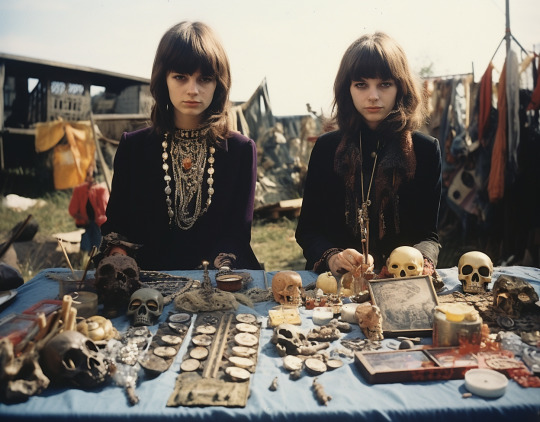
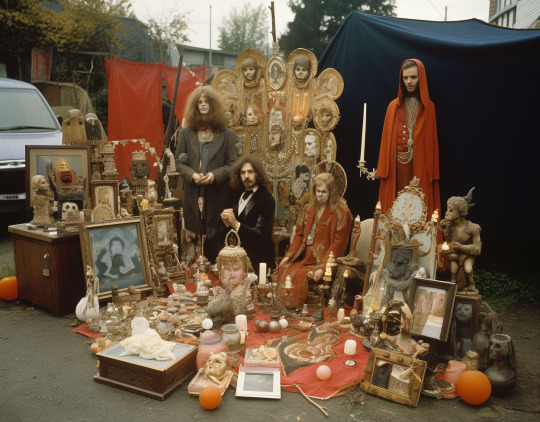


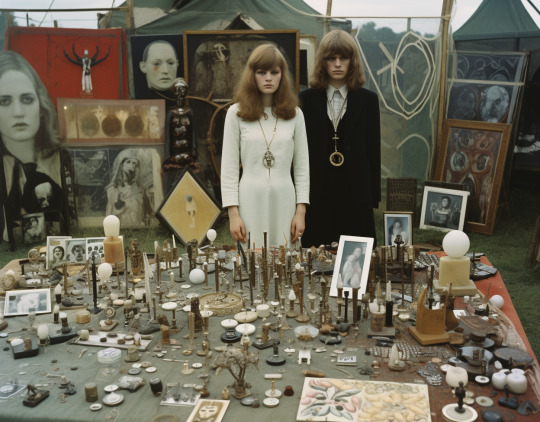
Imaginary pictures from an occult flea market.
9K notes
·
View notes
Text
sorry for spoiling the surprise 😔

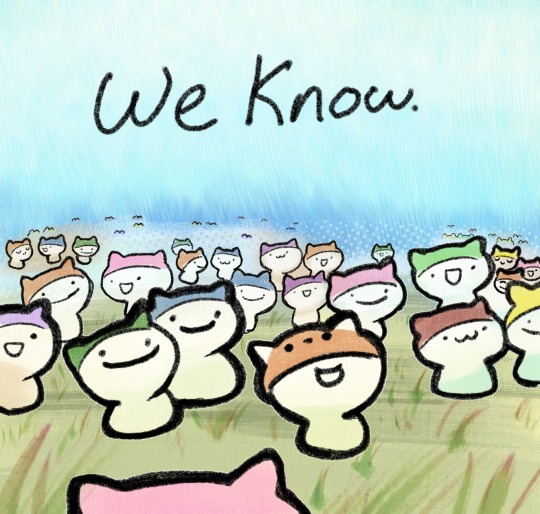
#artists on tumblr#do not repost/steal#no ai/ no nft#dreamfanart#dreamwastaken#fanart#dream fanart#dreamblr#dream team creatives#It would be funny if this wasn’t the announcement#But also funny if it was#Smiletwt gets so excitable#We never let him announce anything lol#Marketing strat I guess#Dreanies#Cat beanies#I fumbled the blobs HARD LOL#they look so messy#Not cute#unlike dream he is very pretty#THE LIL TUFT OF HAIR#The drurls are coming back
470 notes
·
View notes
Text
Okay I'm so sleep deprived so pardon whatever this is but something that's got me FUCKED up about ai generated pictures songs writing is that it just fucking kills the ability to analyse for me because there's no fucking INTENTION behind it. Like why was this decision made why were these colours used what does that say about the work NOTHING because a bunch of programming took work that DID have intent and theme and purposeful choices and turned it into SLOP. Like I COULD analyse this but it doesn't MEAN anything it's EMPTY I want to EXPLODEEE
#Like you can. You can technically analyse ai work for theme and visual literary etc motif but it's all fucking slop to me man#It's making me so cynical about like. Art. I guess. Given the state of corporations and capitalism and the endless stream of#MAKE MONEY BY ANY MEANS. FOR EVERY SECOND THE LINE DOESN'T GO UP WE EXECUTE A HOSTAGE#Like FUCK#I saw that fucking coca cola ad on tv and I wanna get violent man. Like the ad as a representation of all of. This#I know an ad isn't the same kinda thing it's just on my mind#Like nothing means anything anymore it's all gotta be slop it's all gotta be easy corporate slop to appease the market. Every fuckin thing#Ai generated shit is just an endless meaningless hole of malicious thieving garbage and I want to commit a crime#Sorry hi I've been back on that doing art professionally (kinda) grind and I haven't slept in a solid three days it's kinda wearing on me#Gonna be real lads#Oh also that's another thing this is my fucking. Like career path. I do art. And I have to monetize my one great passion. In order to eat#And pay for the constantly exploding rent prices. And now corporations are like hmmmmm#What if we didn't even pay you for that#What if. Hear me out. We stole people's work and made a computer do it#AND THE STUFF THE COMPUTER IS DOING IS GARBAGE#MEANINGLESSNESS SHIT ON TOP OF MEANINGLESS SHIT. FOR PROFIT#Uh anyways I'm going to bed now I have to get up in 3 hours I hope everyone has a better night than this and gets some rest!!#ai mention#vent post
150 notes
·
View notes
Text
Last Tudum we were hoping for actual crumbs with like no evidence. This year we have our own Tudum promo poster? A few ST clips in the Tudum announcement video??? Several ST actors attending the event? Them looking for ST fans for the day before? A Netflix account confirming a teaser that day??? Holy crap?? We’re actually getting content?
And honestly I haven’t been as excited for the teaser as other bylers because I think it’s going to be super milkvan positive and send byler tumblr into shambles. But like I’m excited for the misery now. I’m excited for the hundreds of live post reactions. The tags going to be so alive even if we get 0 byler content.
They’re actually kicking off promo guys. We’re just a few months away from the full blown trailer as well. A few months away from the ACTUAL SEASON. Holy crap.
#byler#byler endgame#anti mileven#st5 marketing#st5#st5 tudum#no way theyre doing all this promo for nothing#the end of the drought is nigh#they better not fill promo with ai slop#that netflix accounts teaser announcement had ai before they deleted it#honestly hoping that account was fake or smth
108 notes
·
View notes
Text
Not my usual post but something I've been thinking about lately.
I think a part of what bothers me the most about the AI generated images/writing/etc debate is folks claiming that they need it because of a lack of talent and skill. Even going so far as to call it an accessibility device.
Which, as a disabled person, boils my blood. Because I think where this comes from is not in the same way as like a curb-cut levels things out for everyone. It's based on impossible standards in literally every piece of media we consume, and I think that's something we can change, rather than forcing people to use a bland device to meet the rest of the world at their level.
Folks are telling themselves they need AI images because becoming an artist takes time, and money, and effort. Some disabled folks don't have the dexterity to hold a pen, or can't sit upright at a computer for hours (me), or can't process visual information in the same way as others. Those are all true statements.
Same with writing. Dyslexia and other learning disorders can make writing intimidating. People receive harsh judgement for things like having poor sentence structure or spelling, even if you as a reader still know exactly what they mean.
The solution to these issues is not "pay an AI company to steal from other creators so everything washes into the same, boring grey blob of creativity". It's make bad art.
I want to see people's art where they don't have a full grasp of anatomy, but try their best anyway. I want to see stories where someone might struggle with visualizing a scene, but they do their best to convey the meaning in whatever way they can. I want to see more people comfortable with posting less than perfect work, and being proud of it because they made it. Or not even feel the need to post at all, because at the end of the day, the little numbers on your screen will never be the most satisfying part of creating. (Telling myself this as well, tbh. It's hard, I get that.)
If everyone is equally good at creating work, then there's never any variety. You can learn just as much, if not more so, from bad art than good. You can find beauty in it, unique ideas or habits that others have dropped because they were told it wasn't proper. You can see pure creative expression, without being chained to traditional conventions taught in school that beat all the fun out of you to make your work marketable.
We're taught in school that other artists are our competition, so of course people are turning to these tools to try and get a leg up. They never learned what a collaborative art or writing community can look like, and how that actually helps you grow as an artist more than AI or self isolation ever could.
If someone is drawing their entire lives, and never gets any more skilled at it for one reason or another, there's nothing wrong with that. That art is just as valid, and just as beautiful.
I understand that people feel this pressure to stand out in a sea of artists who worked their asses off to get where they are, but turning all art and writing into this regurgitation of what has worked before will never bring new ideas into the world in the same way a bored kid with a pencil and notebook paper can. It just won't.
#ai discourse#disability#demirambles#sorry I just have a lot of feelings about this#while generative tools in a vaccum can have some potential merit in artists workflows‚ what's on the market now aint it#Saw a post the other day about how anti ai talk swings into ableism so fast and I felt that so hard#its not that people are lazy. it's that our standards are too goddamn high
118 notes
·
View notes
Photo

Bold Bump: Market Day Adventure | This isn't your typical grocery run—picture a five-months-pregnant man strutting through a lively market, his denim jacket hinting at a fierce style. As he reaches for aromatic spices, his belly shifts, showcasing the journey he's on. The chaos of vibrant vendors surrounds him, while he confidently navigates through the colorful stalls. Meanwhile, his partner, basket in hand, supports his exploration with some good-natured teasing. It's all about embracing the boldness of the unexpected as they both grab what's needed—because even in the hustle, there's room for fun and spontaneity. In a world where norms get turned upside down, they redefine the shopping experience together, one spice bag at a time. More images are also available at https://mpregstuff.com.
#mpreg#mpreg ai#pregnant man#pregnant men#pregnant#mpregstuff#mpreg belly#male pregnancy#bustling market#spices#shopping#denim#5-month
63 notes
·
View notes
